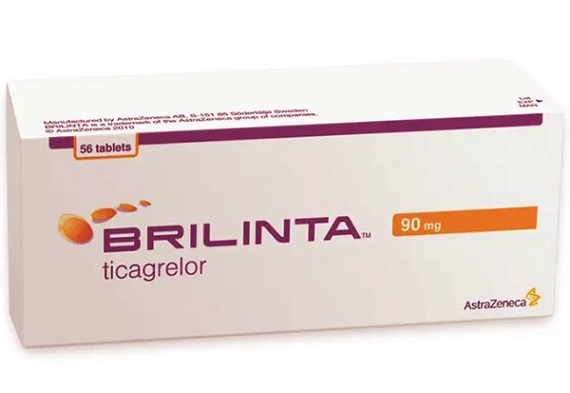BREAKING! BMJ Uncovers Fraud in Clinical Studies Published in Circulation Journal by AstraZeneca to Push Heart Drug Ticagrelor!
James Josh Fact checked by:TMN Jun 20, 2025 8 months, 4 days, 23 hours, 36 minutes ago
Pharma News: A Shocking Revelation About a Popular Heart Drug
In a startling development, The British Medical Journal (BMJ) has revealed what could be one of the most damning examples of medical research fraud in recent years, with serious implications for both patients and public health authorities. The culprit? Global pharmaceutical giant AstraZeneca and its blockbuster heart drug Ticagrelor—sold under the brand names Brilinta in the United States and Brilique in Europe.
 BREAKING! BMJ Uncovers Fraud in Clinical Studies Published in Circulation Journal by AstraZeneca to Push Heart Drug Ticagrelor
BREAKING! BMJ Uncovers Fraud in Clinical Studies Published in Circulation Journal by AstraZeneca to Push Heart Drug Ticagrelor
Ticagrelor has long been a preferred medication for individuals suffering from acute coronary syndrome (ACS), a condition involving sudden, reduced blood flow to the heart, which includes heart attacks and unstable angina. Doctors across the world have routinely prescribed it for over a decade, believing it to be a safer and more effective option than older, cheaper blood-thinning drugs. However, new findings from The BMJ now suggest that the foundation of this belief may have been built on manipulated and misleading data. This
Pharma News report exposes how flawed studies and potential misconduct have helped AstraZeneca rake in billions—while putting countless lives at risk.
Flaws Found in Core Studies Used to Approve the Drug
The BMJ’s latest exposé focuses on two key platelet function studies that were central to Ticagrelor’s approval by regulatory bodies like the U.S. Food and Drug Administration (FDA). These studies were supposed to demonstrate how Ticagrelor worked in the body—specifically, how it inhibited blood platelets to prevent dangerous clots. But The BMJ found serious inaccuracies in how the study results were reported in the highly regarded journal Circulation, which is published by the American Heart Association. There are now speculations that senior members of the editorial team, the study’s medical review team and senior executives at the Circulation journal must have been paid hefty amounts by the pharma giant. Many in the medical, scientific and research communities are now calling for the journal Circulation to be banned.
Of the 282 machine-generated platelet test readings used in the studies, more than 60 were mysteriously missing from the U.S. FDA’s official datasets. Even more troubling, the main outcomes—or "primary endpoints"—of both trials were reported inaccurately. This kind of misreporting goes far beyond mere scientific oversight. It hints at a deliberate attempt to exaggerate the drug’s benefits while hiding its risks.
Missing Authors, Untraceable Investigators, and Silent Stakeholders
In any well-conducted clinical trial, transparency is key. But in this case, red flags abound. One of the individuals actively involved in conducting the trials never became an official author of the studies. Meanwhile, another person listed as an author told The BMJ they had no role in the trials
at all. To make matters worse, most of the named study investigators—including the lead author—either refused to talk to The BMJ or could not be contacted at all. Such evasiveness only raises more suspicions about the legitimacy of the research.
Expert Voices Raise Alarms
Dr. Victor Serebruany, an adjunct faculty member at Johns Hopkins University and a leading critic of Ticagrelor, voiced strong concerns to The BMJ. According to Serebruany, Ticagrelor can cause extreme fluctuations in platelet activity—either excessive clotting or dangerous bleeding. "If doctors had known what happened in these trials," he stated, "they would never have started using Ticagrelor."
He added, "It’s been obvious for years that something is wrong with the data. The fact that FDA leadership could ignore these issues—especially after their own internal reviewers raised concerns—is beyond comprehension. The public deserves answers."
Silence From Circulation and AstraZeneca
Both the journal Circulation and AstraZeneca declined to respond to The BMJ’s request for comments. This silence has fueled speculation that key editors and peer reviewers may have been financially incentivized to greenlight the publication of faulty data. While there is no hard proof of bribery, the lack of transparency surrounding such a high-stakes issue is deeply concerning.
A History of Doubt and a Billion-Dollar Drug
This is not the first time Ticagrelor has come under scrutiny. In December of last year, The BMJ published an earlier investigation into the PLATO trial, the original 18,000-patient study that brought Ticagrelor to market. That investigation also uncovered serious integrity issues in the trial’s data—casting doubt on the drug’s supposed superiority over older and cheaper alternatives.
The timing of this latest exposé is also critical. As Ticagrelor’s patent expires and generic versions of the drug begin entering the market this year, questions about the drug’s safety and efficacy take on renewed importance. Millions of patients around the world could soon be exposed to a drug whose foundational research has now been thoroughly discredited.
Conclusion: A Wake-Up Call for the Medical World
The BMJ’s revelations should serve as a loud wake-up call to doctors, regulatory bodies, and patients alike. At the very heart of modern medicine lies the trust we place in scientific research. When that trust is broken—whether through data manipulation, author fraud, or regulatory inaction—people’s lives are at stake.
Ticagrelor has been prescribed to millions, based on studies now proven to be misleading at best and fraudulent at worst. This case exposes just how vulnerable even prestigious medical journals and trusted regulatory agencies can be to corporate influence. The silence from AstraZeneca and Circulation only deepens public suspicion and demands urgent investigation. Moving forward, there must be a global push for transparency, independent audits of pharmaceutical trials, and accountability for those who manipulate science for profit.
For more details, refer to:
https://www.bmj.com/content/389/bmj.r1201
For the latest
Pharma News, keep on logging to Thailand Medical News.
Read Also:
https://www.thailandmedical.news/news/must-read-publisher-wiley-retracts-8000-peer-reviewed-studies-over-fraudulent-research
https://www.thailandmedical.news/news/breaking-pharma-news-european-medicines-agency-suspends-more-than-400-generic-drugs-from-india-over-flawed-and-possible-fraudulent-studies-in-pune
https://www.thailandmedical.news/news/research-news-outgoing-stanford-president,-neuroscientists-dr-marc-tessier-lavigne-retracts-two-studies-on-alzheimer-from-science-after-review
